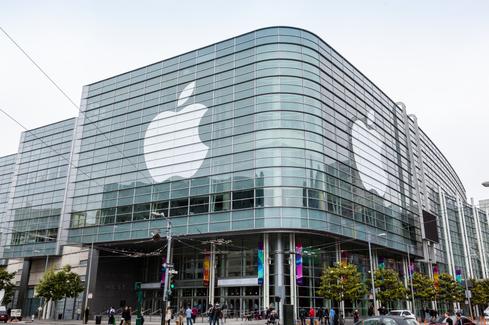How far can the US Department of Justice go in demanding customer data, especially when it's encrypted or stored overseas?

10 Apple Slip-Ups That Bruised Its Reputation(Click image for larger view and slideshow.)
The debate on law enforcement's ability to get to your private data continues to heat up as tech giants Apple and Microsoft go head-to-head with the Department of Justice.
As reported by The New York Times, the Department of Justice wanted Apple to give it access to the real-time communications of a drug-trafficking suspect occurring over an iPhone. Apple rebuffed the DoJ, saying that because of changes introduced in iOS 8 it could not decrypt the iMessages that the DoJ wanted to see.
iMessage uses an end-to-end encryption system, and Apple said it does not store or know the encryption keys used for iMessage conversations.
[Who is adopting Apple Pay? Read: Apple Pay Rings The Register In The US, Not Europe]
Apple's Tim Cook has previously outlined the company's privacy policy.
However, since end-to-end encryption is not used in Apple's iCloud service, Apple handed over messages that were stored there. Had the user not stored messages in iCloud, or used some cloud service that had implemented end-to-end encryption, the outcome might have been different.
This is the latest example of the DoJ demanding an all-access pass to electronic systems. On Sept. 9, Microsoft goes before Manhattan's US Court of Appeals for the Second Circuit. The company is appealing a ruling on a 2013 case in which the DoJ wanted access to a customer's data stored on a server in Ireland.
Microsoft said it would not give the information out without an Irish court consenting to it. The DoJ said that because Microsoft is an American company and can access the data, the warrant that it produced is valid.
In July 2014, a Federal judge sided with the DoJ, leading to the closely watched appeal process that starts this week.
The appeal has gathered the support of many business leaders, including those in non-technical areas.
Patrick Forrest, counsel for the National Association of Manufacturers, wrote in Newsweek this week, "[T]he U.S. government is attempting a substantial overreach by accessing private customer data, stored outside the United States, without following proper procedure."
While the NAM is attempting to take the high moral ground here, and has filed an amicus brief in support of Microsoft, it all comes down to business for the organization.
Forrest went on to say:
This overreach by the Department of Justice has led to a level of mistrust of U.S. companies by foreign customers and opened U.S. companies up to retaliation. In response, some foreign governments have initiated data localization requirements and other countries are moving toward limiting U.S. companies from providing services to their citizens. The effect is to shut American businesses out from the marketplace.
In many ways, this appeal gets to the heart of a difficult problem. What is the role of a nation-state in a digital age? How can local jurisdiction apply in countries that may have differing standards? Many, many people will be watching this case with extreme interest.
About the Author(s)
You May Also Like








